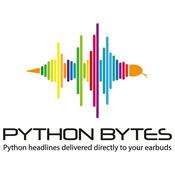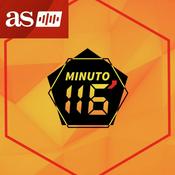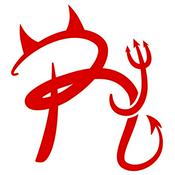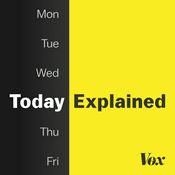46 episodios
- Topics covered in this episode:
Command Book App
uvx.sh: Install Python tools without uv or Python
Ending 15 years of subprocess polling
monty: A minimal, secure Python interpreter written in Rust for use by AI
Extras
Joke
Watch on YouTube
About the show
Sponsored by us! Support our work through:
Our courses at Talk Python Training
The Complete pytest Course
Patreon Supporters
Connect with the hosts
Michael: @[email protected] / @mkennedy.codes (bsky)
Brian: @[email protected] / @brianokken.bsky.social
Show: @[email protected] / @pythonbytes.fm (bsky)
Join us on YouTube at pythonbytes.fm/live to be part of the audience. Usually Monday at 10am PT. Older video versions available there too.
Finally, if you want an artisanal, hand-crafted digest of every week of the show notes in email form? Add your name and email to our friends of the show list, we'll never share it.
Michael #1: Command Book App
New app from Michael
Command Book App is a native macOS app for developers, data scientists, AI enthusiasts and more.
This is a tool I've been using lately to help build Talk Python, Python Bytes, Talk Python Training, and many more applications.
It's a bit like advanced terminal commands or complex shell aliases, but hosted outside of your terminal. This leaves the terminal there for interactive commands, exploration, short actions.
Command Book manages commands like "tail this log while I'm developing the app", "Run the dev web server with true auto-reload", and even "Run MongoDB in Docker with exactly the settings I need"
I'd love it if you gave it a look, shared it with your team, and send me feedback.
Has a free version and paid version.
Build with Swift and Swift UI
Check it out at https://commandbookapp.com
Brian #2: uvx.sh: Install Python tools without uv or Python
Tim Hopper
Michael #3: Ending 15 years of subprocess polling
by Giampaolo Rodola
The standard library's subprocess module has relied on a busy-loop polling approach since the timeout parameter was added to Popen.wait() in Python 3.3, around 15 years ago
The problem with busy-polling
CPU wake-ups: even with exponential backoff (starting at 0.1ms, capping at 40ms), the system constantly wakes up to check process status, wasting CPU cycles and draining batteries.
Latency: there's always a gap between when a process actually terminates and when you detect it.
Scalability: monitoring many processes simultaneously magnifies all of the above.
+ L1/L2 CPU cache invalidations
It’s interesting to note that waiting via poll() (or kqueue()) puts the process into the exact same sleeping state as a plain time.sleep() call. From the kernel's perspective, both are interruptible sleeps.
Here is the merged PR for this change.
Brian #4: monty: A minimal, secure Python interpreter written in Rust for use by AI
Samuel Colvin and others at Pydantic
Still experimental
“Monty avoids the cost, latency, complexity and general faff of using a full container based sandbox for running LLM generated code. “
“Instead, it lets you safely run Python code written by an LLM embedded in your agent, with startup times measured in single digit microseconds not hundreds of milliseconds.”
Extras
Brian:
Expertise is the art of ignoring - Kevin Renskers
You don’t need to master the language. You need to master your slice.
Learning everything up front is wasted effort.
Experience changes what you pay attention to.
I hate fish - Rands (Michael Lopp)
Really about productivity systems
And a nice process for dealing with email
Michael:
Talk Python now has a CLI
New essay: It's not vibe coding - Agentic engineering
GitHub is having a day
Python 3.14.3 and 3.13.12 are available
Wall Street just lost $285 billion because of 13 markdown files
Joke: Silence, current side project! - Topics covered in this episode:
django-bolt: Faster than FastAPI, but with Django ORM, Django Admin, and Django packages
pyleak
More Django (three articles)
Datastar
Extras
Joke
Watch on YouTube
About the show
Sponsored by us! Support our work through:
Our courses at Talk Python Training
The Complete pytest Course
Patreon Supporters
Connect with the hosts
Michael: @[email protected] / @mkennedy.codes (bsky)
Brian: @[email protected] / @brianokken.bsky.social
Show: @[email protected] / @pythonbytes.fm (bsky)
Join us on YouTube at pythonbytes.fm/live to be part of the audience. Usually Monday at 11am PT. Older video versions available there too.
Finally, if you want an artisanal, hand-crafted digest of every week of the show notes in email form? Add your name and email to our friends of the show list, we'll never share it.
Brian #1: django-bolt : Faster than FastAPI, but with Django ORM, Django Admin, and Django packages
Farhan Ali Raza
High-Performance Fully Typed API Framework for Django
Inspired by DRF, FastAPI, Litestar, and Robyn
Django-Bolt docs
Interview with Farhan on Django Chat Podcast
And a walkthrough video
Michael #2: pyleak
Detect leaked asyncio tasks, threads, and event loop blocking with stack trace in Python. Inspired by goleak.
Has patterns for
Context managers
decorators
Checks for
Unawaited asyncio tasks
Threads
Blocking of an asyncio loop
Includes a pytest plugin so you can do @pytest.mark.no_leaks
Brian #3: More Django (three articles)
Migrating From Celery to Django Tasks
Paul Taylor
Nice intro of how easy it is to get started with Django Tasks
Some notes on starting to use Django
Julia Evans
A handful of reasons why Django is a great choice for a web framework
less magic than Rails
a built-in admin
nice ORM
automatic migrations
nice docs
you can use sqlite in production
built in email
The definitive guide to using Django with SQLite in production
I’m gonna have to study this a bit.
The conclusion states one of the benefits is “reduced complexity”, but, it still seems like quite a bit to me.
Michael #4: Datastar
Sent to us by Forrest Lanier
Lots of work by Chris May
Out on Talk Python soon.
Official Datastar Python SDK
Datastar is a little like HTMX, but
The single source of truth is your server
Events can be sent from server automatically (using SSE)
e.g
yield SSE.patch_elements(
f"""{(#HTML#)}{datetime.now().isoformat()}"""
)
Why I switched from HTMX to Datastar article
Extras
Brian:
Django Chat: Inverting the Testing Pyramid - Brian Okken
Quite a fun interview
PEP 686 – Make UTF-8 mode default
Now with status “Final” and slated for Python 3.15
Michael:
Prayson Daniel’s Paper tracker
Ice Cubes (open source Mastodon client for macOS)
Rumdl for PyCharm, et. al
cURL Gets Rid of Its Bug Bounty Program Over AI Slop Overrun
Python Developers Survey 2026
Joke: Pushed to prod - Topics covered in this episode:
GreyNoise IP Check
tprof: a targeting profiler
TOAD is out
Extras
Joke
Watch on YouTube
About the show
Sponsored by us! Support our work through:
Our courses at Talk Python Training
The Complete pytest Course
Patreon Supporters
Connect with the hosts
Michael: @[email protected] / @mkennedy.codes (bsky)
Brian: @[email protected] / @brianokken.bsky.social
Show: @[email protected] / @pythonbytes.fm (bsky)
Join us on YouTube at pythonbytes.fm/live to be part of the audience. Usually Monday at 11am PT. Older video versions available there too.
Finally, if you want an artisanal, hand-crafted digest of every week of the show notes in email form? Add your name and email to our friends of the show list, we'll never share it.
Michael #1: GreyNoise IP Check
GreyNoise watches the internet's background radiation—the constant storm of scanners, bots, and probes hitting every IP address on Earth.
Is your computer sending out bot or other bad-actor traffic? What about the myriad of devices and IoT things on your local IP?
Heads up: If your IP has recently changed, it might not be you (false positive).
Brian #2: tprof: a targeting profiler
Adam Johnson
Intro blog post: Python: introducing tprof, a targeting profiler
Michael #3: TOAD is out
Toad is a unified experience for AI in the terminal
Front-end for AI tools such as OpenHands, Claude Code, Gemini CLI, and many more.
Better TUI experience (e.g. @ for file context uses fuzzy search and dropdowns)
Better prompt input (mouse, keyboard, even colored code and markdown blocks)
Terminal within terminals (for TUI support)
Brian #4: FastAPI adds Contribution Guidelines around AI usage
Docs commit: Add contribution instructions about LLM generated code and comments and automated tools for PRs
Docs section: Development - Contributing : Automated Code and AI
Great inspiration and example of how to deal with this for popular open source projects
“If the human effort put in a PR, e.g. writing LLM prompts, is less than the effort we would need to put to review it, please don't submit the PR.”
With sections on
Closing Automated and AI PRs
Human Effort Denial of Service
Use Tools Wisely
Extras
Brian:
Apparently Digg is back and there’s a Python Community there
Why light-weight websites may one day save your life - Marijke LuttekesHome
Michael:
Blog posts about Talk Python AI Integrations
Announcing Talk Python AI Integrations on Talk Python’s Blog
Blocking AI crawlers might be a bad idea on Michael’s Blog
Already using the compile flag for faster app startup on the containers:
RUN --mount=type=cache,target=/root/.cache uv pip install --compile-bytecode --python /venv/bin/python
I think it’s speeding startup by about 1s / container.
Biggest prompt yet? 72 pages, 11, 000
Joke: A date
via From Pat Decker - Topics covered in this episode:
Better Django management commands with django-click and django-typer
PSF Lands a $1.5 million sponsorship from Anthropic
How uv got so fast
PyView Web Framework
Extras
Joke
Watch on YouTube
About the show
Sponsored by us! Support our work through:
Our courses at Talk Python Training
The Complete pytest Course
Patreon Supporters
Connect with the hosts
Michael: @[email protected] / @mkennedy.codes (bsky)
Brian: @[email protected] / @brianokken.bsky.social
Show: @[email protected] / @pythonbytes.fm (bsky)
Join us on YouTube at pythonbytes.fm/live to be part of the audience. Usually Monday at 11am PT. Older video versions available there too.
Finally, if you want an artisanal, hand-crafted digest of every week of the show notes in email form? Add your name and email to our friends of the show list, we'll never share it.
Brian #1: Better Django management commands with django-click and django-typer
Lacy Henschel
Extend Django <code>manage.py</code> commands for your own project, for things like
data operations
API integrations
complex data transformations
development and debugging
Extending is built into Django, but it looks easier, less code, and more fun with either <code>django-click</code> or <code>django-typer</code>, two projects supported through Django Commons
Michael #2: PSF Lands a $1.5 million sponsorship from Anthropic
Anthropic is partnering with the Python Software Foundation in a landmark funding commitment to support both security initiatives and the PSF's core work.
The funds will enable new automated tools for proactively reviewing all packages uploaded to PyPI, moving beyond the current reactive-only review process.
The PSF plans to build a new dataset of known malware for capability analysis
The investment will sustain programs like the Developer in Residence initiative, community grants, and infrastructure like PyPI.
Brian #3: How uv got so fast
Andrew Nesbitt
It’s not just be cause “it’s written in Rust”.
Recent-ish standards, PEPs 518 (2016), 517 (2017), 621 (2020), and 658 (2022) made many uv design decisions possible
And uv drops many backwards compatible decisions kept by pip.
Dropping functionality speeds things up.
“Speed comes from elimination. Every code path you don’t have is a code path you don’t wait for.”
Some of what uv does could be implemented in pip. Some cannot.
Andrew discusses different speedups, why they could be done in Python also, or why they cannot.
I read this article out of interest. But it gives me lots of ideas for tools that could be written faster just with Python by making design and support decisions that eliminate whole workflows.
Michael #4: PyView Web Framework
PyView brings the Phoenix LiveView paradigm to Python
Recently interviewed Larry on Talk Python
Build dynamic, real-time web applications using server-rendered HTML
Check out the examples.
See the Maps demo for some real magic
How does this possibly work? See the LiveView Lifecycle.
Extras
Brian:
Upgrade Django, has a great discussion of how to upgrade version by version and why you might want to do that instead of just jumping ahead to the latest version. And also who might want to save time by leapfrogging
Also has all the versions and dates of release and end of support.
The Lean TDD book 1st draft is done.
Now available through both pythontest and LeanPub
I set it as 80% done because of future drafts planned.
I’m working through a few submitted suggestions. Not much feedback, so the 2nd pass might be fast and mostly my own modifications. It’s possible.
I’m re-reading it myself and already am disappointed with page 1 of the introduction. I gotta make it pop more. I’ll work on that.
Trying to decide how many suggestions around using AI I should include.
It’s not mentioned in the book yet, but I think I need to incorporate some discussion around it.
Michael:
Python: What’s Coming in 2026
Python Bytes rewritten in Quart + async (very similar to Talk Python’s journey)
Added a proper MCP server at Talk Python To Me (you don’t need a formal MCP framework btw)
Example one: latest-episodes-mcp.png
Example two: which-episodes-mcp.webp
Implmented /llms.txt for Talk Python To Me (see talkpython.fm/llms.txt )
Joke: Reverse Superman - Topics covered in this episode:
port-killer
How we made Python's packaging library 3x faster
CodSpeed
Extras
Joke
Watch on YouTube
About the show
Sponsored by us! Support our work through:
Our courses at Talk Python Training
The Complete pytest Course
Patreon Supporters
Connect with the hosts
Michael: @[email protected] / @mkennedy.codes (bsky)
Brian: @[email protected] / @brianokken.bsky.social
Show: @[email protected] / @pythonbytes.fm (bsky)
Join us on YouTube at pythonbytes.fm/live to be part of the audience. Usually Monday at 11am PT. Older video versions available there too.
Finally, if you want an artisanal, hand-crafted digest of every week of the show notes in email form? Add your name and email to our friends of the show list, we'll never share it.
Michael #1: port-killer
A powerful cross-platform port management tool for developers.
Monitor ports, manage Kubernetes port forwards, integrate Cloudflare Tunnels, and kill processes with one click.
Features:
🔍 Auto-discovers all listening TCP ports
⚡ One-click process termination (graceful + force kill)
🔄 Auto-refresh with configurable interval
🔎 Search and filter by port number or process name
⭐ Favorites for quick access to important ports
👁️ Watched ports with notifications
📂 Smart categorization (Web Server, Database, Development, System)
Brian #2: How we made Python's packaging library 3x faster
Henry Schreiner
Some very cool graphs demonstrating some benchmark data.
And then details about how various speedups
each being 2-37% faster
the total adding up to about 3x speedup, or shaving 2/3 of the time.
These also include nice write-ups about why the speedups were chosen.
If you are trying to speed up part of your system, this would be good article to check out.
Michael #3: AI’s Impact on dev companies
On TailwindCSS: via Simon
Tailwind is growing faster than ever and is bigger than it has ever been
Its revenue is down close to 80%.
75% of the people on our engineering team lost their jobs here yesterday because of the brutal impact AI has had on our business.
“We had 6 months left”
Listen to the founder: “A Morning Walk”
Super insightful video: Tailwind is in DEEP trouble
On Stack Overflow: See video.
SO was founded around 2009, first month had 3,749 questions
December, SO had 3,862 questions asked
Most of its live it had 200,000 questions per month
That is a 53x drop!
Brian #4: CodSpeed
“CodSpeed integrates into dev and CI workflows to measure performance, detect regressions, and enable actionable optimizations.”
Noticed it while looking through the GitHub workflows for FastAPI
Free for small teams and open-source projects
Easy to integrate with Python by marking tests with @pytest.mark.benchmark
They’ve releases a GitHub action to incorporate benchmarking in CI workflows
Extras
Brian:
Part 2 of Lean TDD released this morning, “Lean TDD Practices”, which has 9 mini chapters.
Michael:
Our Docker build just broke because of the supply chain techniques from last week (that’s a good thing!). Not a real issue, but really did catch an open CVE.
Long passwords are bad now? ;)
Joke: Check out my app!
Más podcasts de Noticias
Podcasts a la moda de Noticias
Acerca de Python Bytes
Python Bytes is a weekly podcast hosted by Michael Kennedy and Brian Okken. The show is a short discussion on the headlines and noteworthy news in the Python, developer, and data science space.
Sitio web del podcastEscucha Python Bytes, Herrera en COPE y muchos más podcasts de todo el mundo con la aplicación de radio.es

Descarga la app gratuita: radio.es
- Añadir radios y podcasts a favoritos
- Transmisión por Wi-Fi y Bluetooth
- Carplay & Android Auto compatible
- Muchas otras funciones de la app
Descarga la app gratuita: radio.es
- Añadir radios y podcasts a favoritos
- Transmisión por Wi-Fi y Bluetooth
- Carplay & Android Auto compatible
- Muchas otras funciones de la app


Python Bytes
Escanea el código,
Descarga la app,
Escucha.
Descarga la app,
Escucha.






































